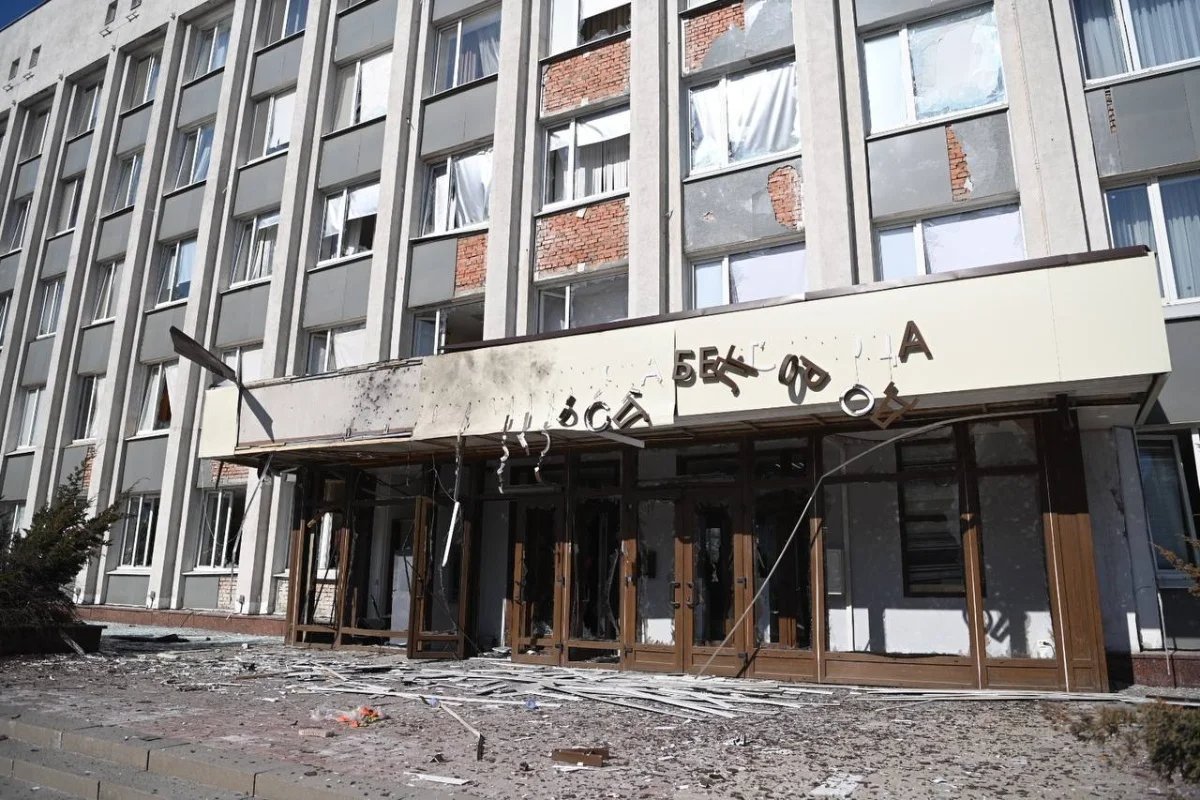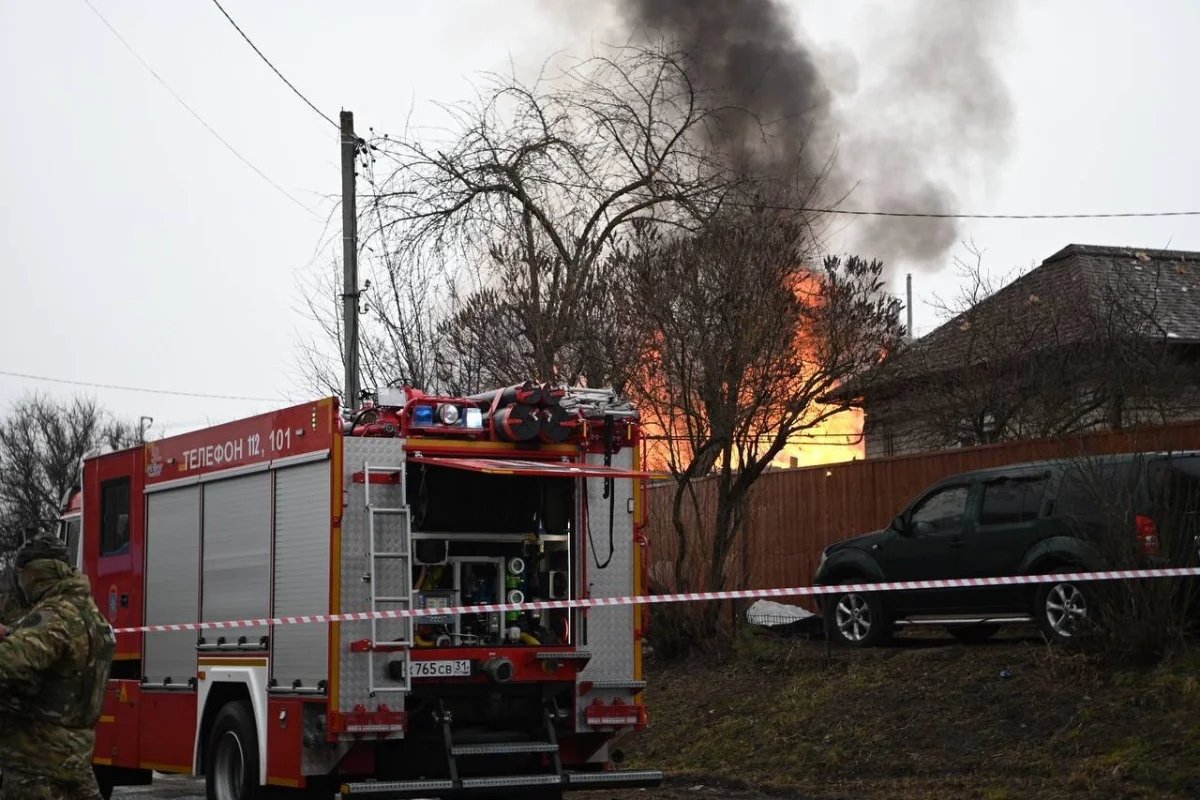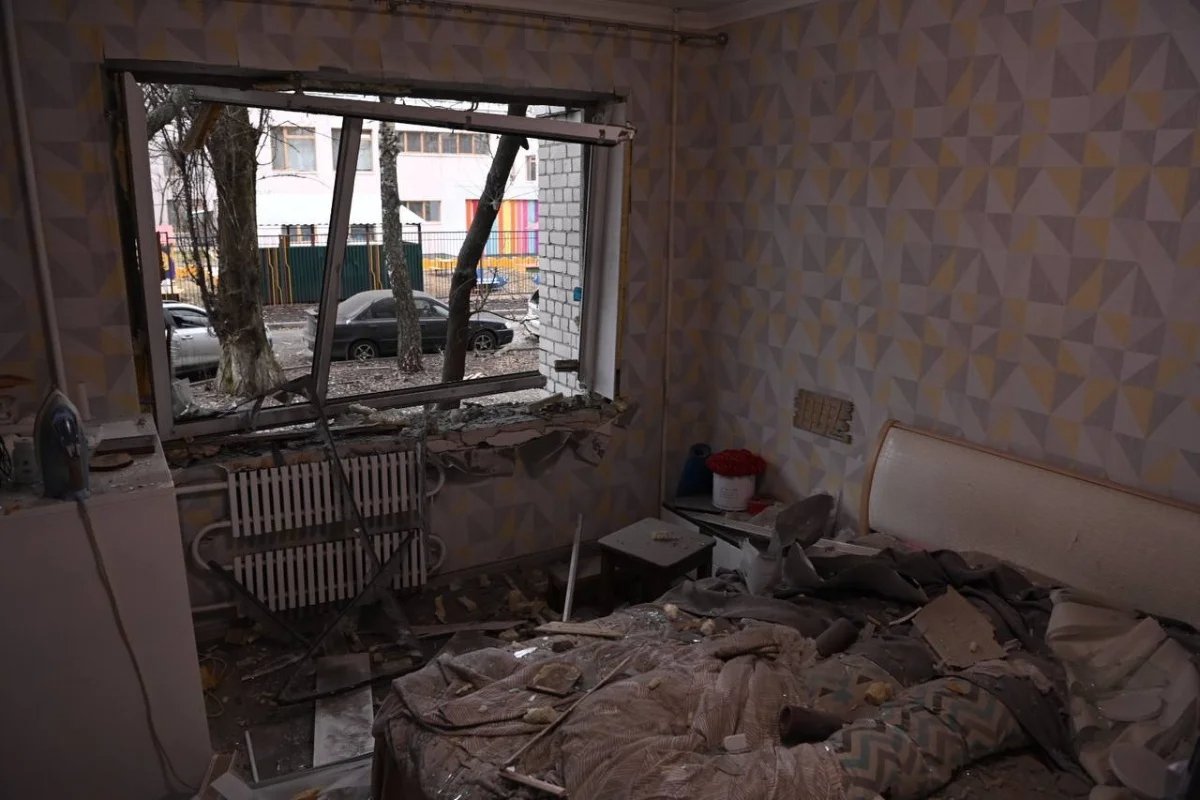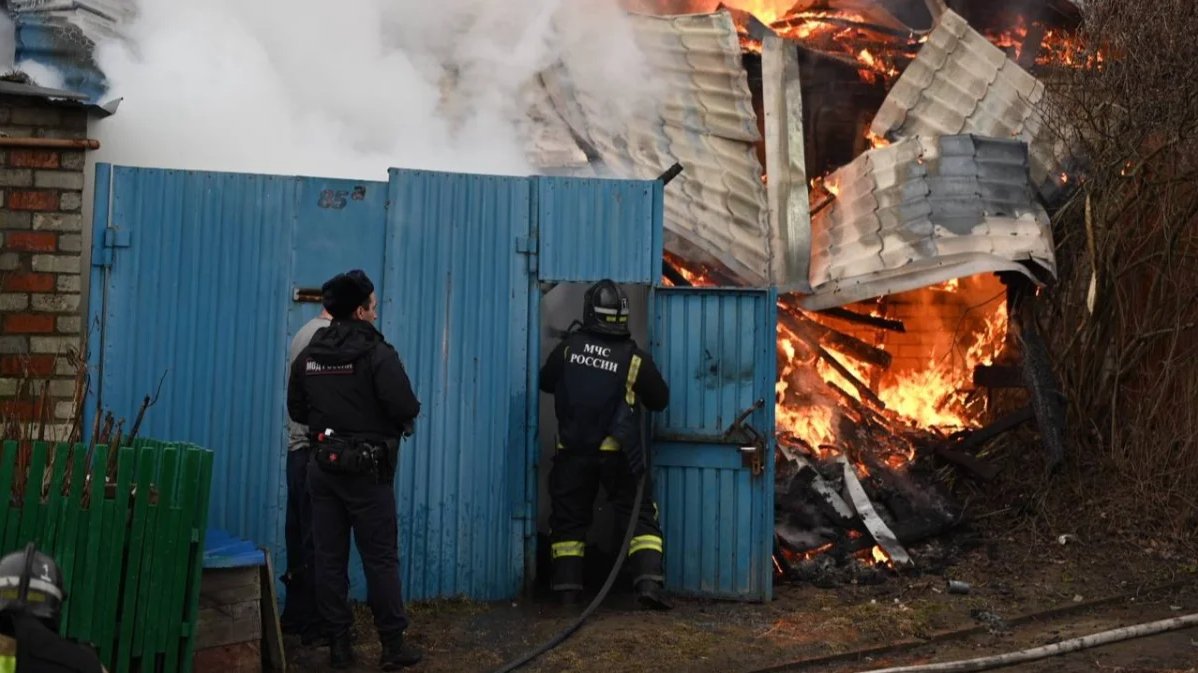Local group chats in the Russian border region of Belgorod are inundated with the same question over and over again after missile strikes: “Is everyone in one piece?” Group chats have become the best way for residents to find out if anyone they know has been injured — or worse. Once you have the all-clear, you can breathe a sigh of relief until the next siren goes off.
Sometimes non-locals write to Belgorod group chats, though they often appear not to have grasped the severity of the situation and their questions and comments seem naive to locals. To them, a bombed-out city is something they’d see in a movie or on the news, not a daily reality they have to face.
Since Russia’s invasion of Ukraine two years ago, a total of 134 Belgorod residents have been killed in shelling, missile and drone strikes. On 15 March, Belgorod came under fire from Ukrainian cluster munitions, killing several people and leading Belgorod Governor Vyacheslav Gladkov to announce the closure of schools and shops in the city, as well as in certain parts of the wider region near the Ukrainian border.
The city is under siege from multiple missile launchers. Such cluster munitions increase the risk of civilian deaths and were banned by a 2008 UN convention to which neither Russia nor Ukraine are signatories.
Novaya Gazeta Europe spoke to several Belgorod residents about their daily lives under fierce shelling and how they feel about being trapped in the conflict between Russia and Ukraine but of little concern to either.
‘I don’t leave the house, even to go to the store’
“You can cut the tension here with a knife. People always have their phones within reach. They monitor social media channels constantly to seek out information,” said Belgorod citizen Artyom. “Life goes on but it’s frightening. You don’t know when or where missiles will land, whether to run to a shelter or to your house, whether to go to work or not.”
Anya, another local, is able to compare the situation in Belgorod to that in other cities that came under attack as she was in Ukraine’s second city Kharkiv when the war started. Anya was convinced that the situation in Belgorod is worse than it was in Kharkiv, as during the first days of the war, Kharkiv’s military infrastructure was targeted rather than its civilians. “My life was not directly threatened in Kharkiv. It all seemed rather distant from me,” she said.
Now however, residential buildings are being targeted by both sides.
At first, Anya thought that the heavy shelling on Belgorod was related to Russia’s presidential election and that she just needed to “wait it out”. But following Putin’s re-election, not only did the shelling not subside, it intensified. “I don’t leave the house, even to go to the store. During the missile strikes, I just move away from the window, go out into the corridor, stand, and pray a little: at least it didn’t hit our house, at least our windows weren’t hit. That’s it,” Anya said.

Photo: Demidov / Telegram
Only in the evening does Anya allow herself to cry. She can sometimes see the aftermath of missile strikes from her window.
Another local, Daria, believes the situation is improving: more people can be seen on the street, maybe as the city’s cafés have re-opened. Nothing has drastically changed however. Concrete bomb shelters remain on the street, sirens still wail, and air raid warning systems sound near schools to warn children when to head into the shelters during a missile strike.
Most basements, which the authorities recommended using as bomb shelters, remain closed. At the beginning of the war, Belgorod introduced anti-terrorist measures that closed all attics and basements in the area. While building residents have keys for their basements, passers-by who get caught up in shelling on the street do not.
“Belgorod residents feel so angry because neither the authorities nor other Russian citizens seem to be doing anything in response,” Daria said. “Belgorod residents leave comments under social media posts asking the authorities to save the city. Other Russians reply to the comments, saying that we are employed by the Ukrainian secret services to spread misinformation and that we don’t understand what is happening in our own city. I think the locals here were very offended.”
“My friends who voted for Putin are beginning to feel abandoned. Abandoned by Putin, by the authorities, nobody seems to care about us in Belgorod.” Daria said.

Photo: Demidov / Telegram
‘Until the fighting reaches Moscow, nobody will care’
“Shooting at civilians is a war crime,” Artyom said, “It doesn’t matter which country is shooting. And it makes me doubly angry that the West is encouraging Ukraine’s behaviour here, and that the paramilitary Russian Volunteer Corps which works with the Armed Forces of Ukraine is killing its compatriots.”
“I don’t really have an opinion on Ukraine. I don’t support the war. And I am against troops using banned weapons to target civilians. Those sorts of people are real terrorists,” Artyom said.
“What can we do?” asks Anastasia emotionally. She says she believes Belgorod has been used as a sacrificial lamb by Russia.
Many Belgorod residents were against the invasion of Ukraine from the beginning and some still remember a time when you could travel to Kharkiv for the weekend on direct trains. “And now there is a war, and for some reason Belgorod is to blame. A city that definitely didn’t want war in the first place.”
“Ukrainians consider us enemies because of the idiotic soldiers who like to launch missiles at them. But we locals don’t agree. Ukrainians view us as the staunchest Putin supporters but to Russians we are Ukrainians and refugees, who will steal their jobs. Nobody cares about us dying. Nobody cared about Mariupol, Kharkiv or Shebekino … Until the fighting reaches Moscow, nobody will care,” Anastasia said, holding back tears.
When asked about the drones sent to Moscow, Anastasia just smiled: “They’re not real missile strikes. God forbid they endure what we have had to go through.”
Where is there to go?
Russia isn’t currently offering any assistance to Belgorod residents wishing to evacuate the city. The most that the authorities have done is send 9,000 children to other regions.
After the election and the recent intensification of missile strikes on Belgorod, Anastasia came to the conclusion that she would sooner or later need to leave the city: “Most of us who have stayed here until now will soon leave because our nerves won’t hold up.”
As the state provides no financial support to businesses affected by the strikes, local business owners must decide for themselves whether or not to continue operating under fire.

Photo: Demidov / Telegram
“You can only leave immediately after a missile strike. It’s too dangerous to leave at any other time of day because you have no idea when the shelling will start again. If the missile strikes were kept to a schedule during the election, we are now under fire at any time of day or night.” Anastasia explained.
While there are still trains to Moscow, the station is in the centre of Belgorod, which has come under fire multiple times.
There is also the question of where people who leave would live. “Just where am I going to live with two cats and a dog? Are we going to live in gyms? In dorms? I have my own house here, and so far shelling hasn’t come very close.” Anastasia said, explaining her reason for staying.
As we spoke, sirens started howling again and Anastasia left to hide in the hallway. Explosions and car alarms could be heard in the background before Anastasia ended the call.
Join us in rebuilding Novaya Gazeta Europe
The Russian government has banned independent media. We were forced to leave our country in order to keep doing our job, telling our readers about what is going on Russia, Ukraine and Europe.
We will continue fighting against warfare and dictatorship. We believe that freedom of speech is the most efficient antidote against tyranny. Support us financially to help us fight for peace and freedom.
By clicking the Support button, you agree to the processing of your personal data.
To cancel a regular donation, please write to [email protected]

